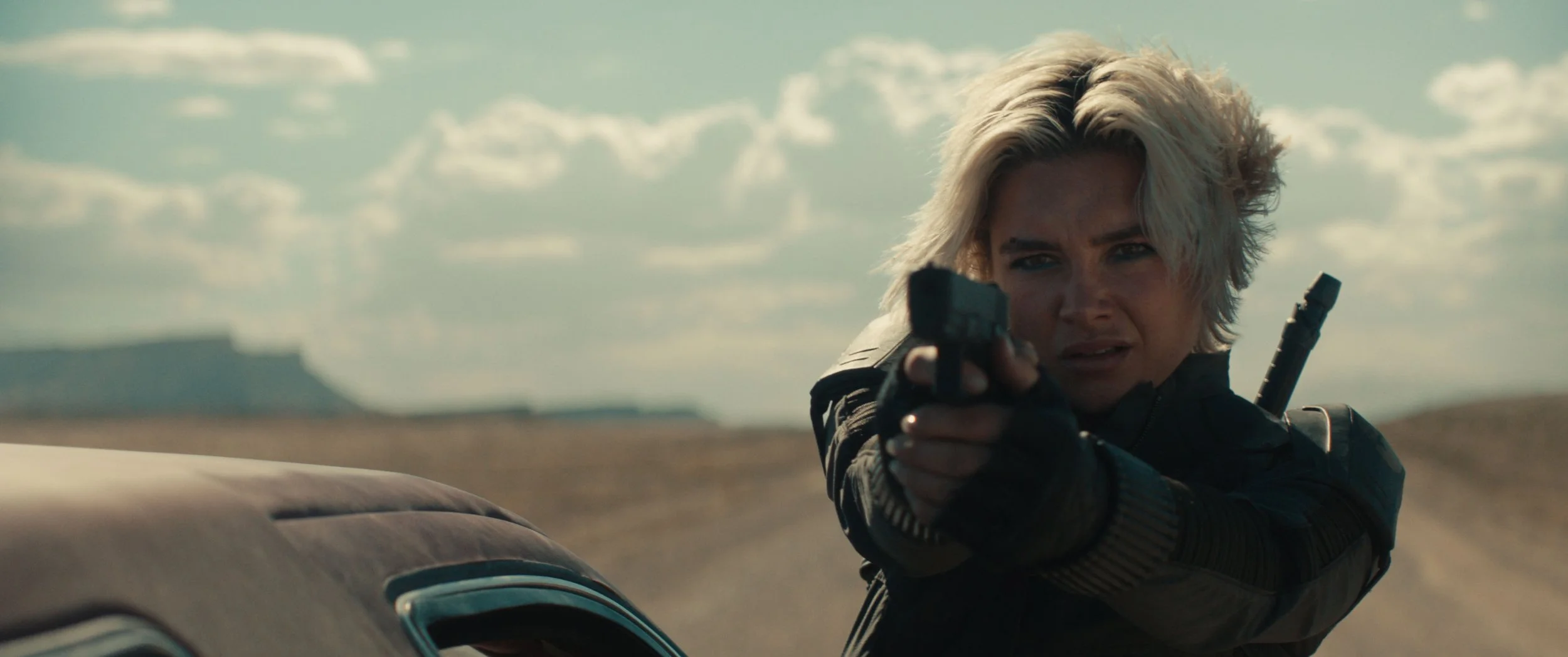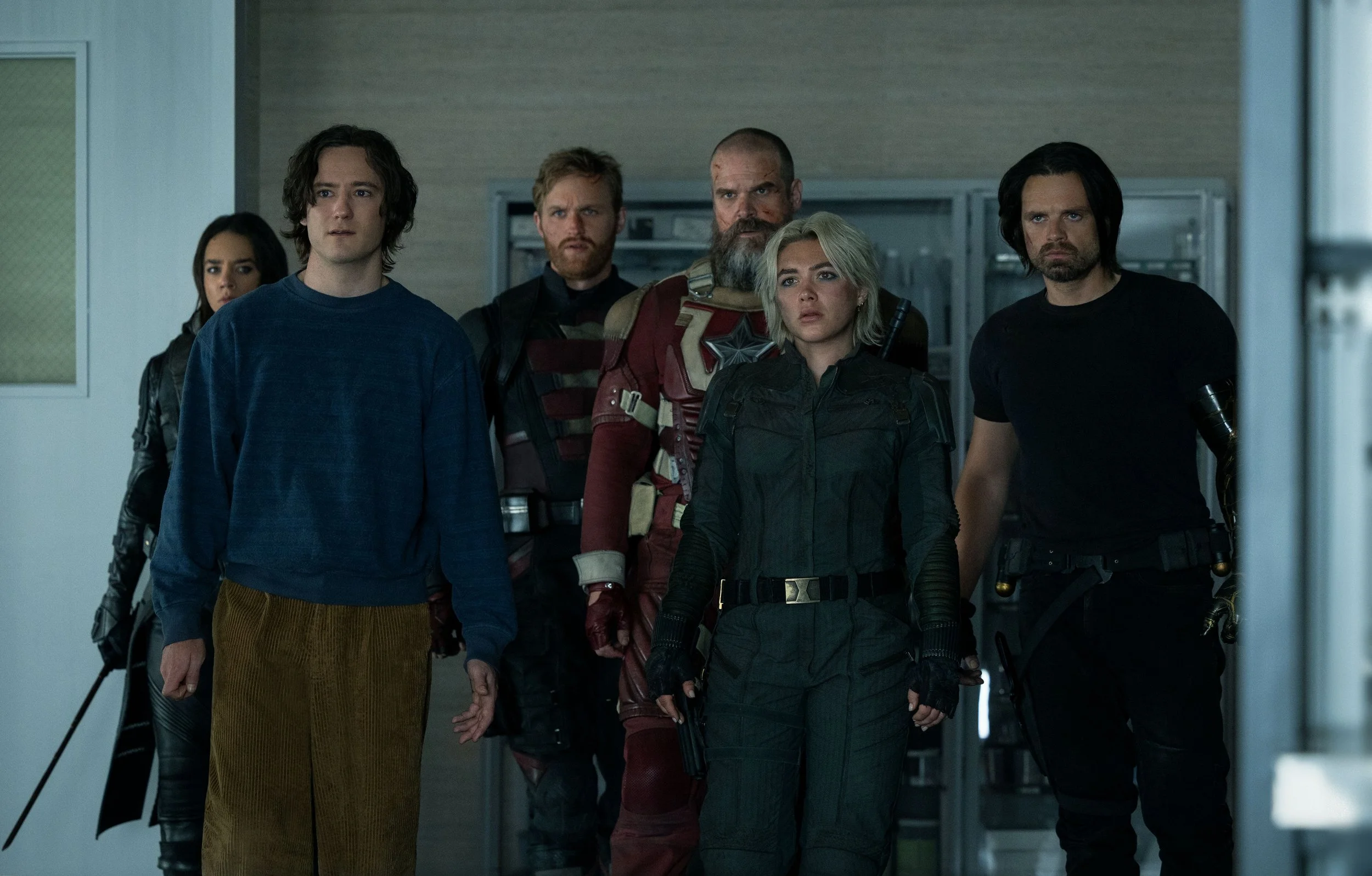Thunderbolts* Review: Marvel’s Antiheroes Take the Spotlight
The journey to Doomsday begins. Over the next year, a series of Marvel projects will set the stage for the Avengers to meet again in Avengers: Doomsday, and Thunderbolts* is one of the crucial pieces that needs to land — especially in terms of character development — if audiences are going to care when the stakes are at their highest. So, does it do the job? Let’s find out.
After years of teasing a darker, grittier side of the Marvel Cinematic Universe, Thunderbolts* finally brings the antiheroes into the spotlight. Directed with a sharp edge and a clear understanding of its characters’ messy morality, the film gathers some of Marvel’s most complicated figures and throws them into a mission where survival is anything but guaranteed. Unlike the polished heroism of the Avengers, Thunderbolts* thrives on chaos, betrayal, and uneasy alliances, offering a refreshing — if at times uneven — change of pace. As Marvel continues to expand its roster beyond traditional superheroes, Thunderbolts* serves as both a thrilling experiment and a glimpse into a rougher, riskier future for the franchise.
Thunderbolts* directed by Jake Schreier, assembles Marvel’s most conflicted antiheroes for a deadly black-ops mission. In the film, an unconventional team consisting of Yelena Belova, Bucky Barnes, Red Guardian, Ghost, Taskmaster, and John Walker — find themselves ensnared in a deadly trap, forced into a dangerous mission that pushes them to confront the darkest corners of their pasts.
To start, the performances across the board are solid, but it’s Florence Pugh’s Yelena who emotionally anchors the film, and fittingly so, given how much Marvel has invested in her arc over the past few years. Her expanded backstory adds genuine weight to the mission, offering the audience a clear window into the personal stakes driving the team forward. It’s rewarding to finally watch these characters come together, even as their fractured loyalties and haunted pasts bubble to the surface.
Director Jake Schreier brings a kinetic, almost brutal edge to the set pieces, allowing the film’s darker tone to shine through both the choreography and the visual storytelling in ways that feel genuinely refreshing for the MCU. It helps that the Thunderbolts* are all ground-level characters — there are no laser beams, flight powers (aside from enhanced strength), or reality-bending abilities here, making the action feel rawer and more visceral by design. Well, okay — Ghost can phase through objects — but you get the idea. The action scenes are well crafted, striking a strong balance between intensity and clarity without ever feeling overstuffed or chaotic. The writing, meanwhile, feels polished and purposeful, giving the story a tight, brisk pace that rarely lets up. The dialogue is generally sharp but could have benefited from a bit more refinement, and while the overall structure is clean, there are moments where the script could have dug just a little deeper to fully flesh out the emotional stakes.
Beyond the action, Thunderbolts* explores several deeper themes, such as loneliness and its corrosive effects on individuals. Throughout the film, characters wrestle with feelings of isolation, abandonment, and the scars left behind by past betrayals. These emotional undercurrents add surprising weight to the story, revealing how loneliness can drive people to make desperate choices or form unlikely bonds, which will resonate with most audiences. Rather than treating these struggles as background noise, the film weaves them into the characters' journeys in a way that feels honest and affecting, giving the chaos and conflict a more human core.
One of the most surprising elements for me was how dark Marvel was willing to go in this MCU chapter. When the stakes hit, the tone shifts dramatically, pulling the story into a far grittier, more emotionally intense territory than audiences might expect. It's a bold move — and a welcome one — proving that Marvel is willing to push its boundaries when the story demands it. The darker moments aren't just for shock value; they add weight and urgency to the characters' choices, making the emotional stakes feel earned rather than manufactured.
However, Thunderbolts* isn’t without its missteps. While the film largely honors its brisk pacing and emotional beats, the humor often feels misplaced, undercutting moments that could have landed with greater impact. Marvel’s signature slick humor — typically a strength — comes across here as more forced than natural, a disappointing surprise in an otherwise tightly crafted film. Additionally, while some characters are given rich development, others feel underserved — a missed opportunity for a movie centered around exploring messy, morally gray heroes. This shortfall will feel even more significant in the films to follow, especially as we move closer to Avengers: Doomsday in 2026, where strong character foundations will be critical for the emotional payoff Marvel is clearly building toward.
In the end, Thunderbolts* offers everything you’d want in a Marvel film for the most part: high-stakes action, sharp performances, and just enough heart to make the chaos matter. It may not break the MCU mold entirely, but it stretches it in exciting, character-driven, fresh, and genuinely earned ways.



